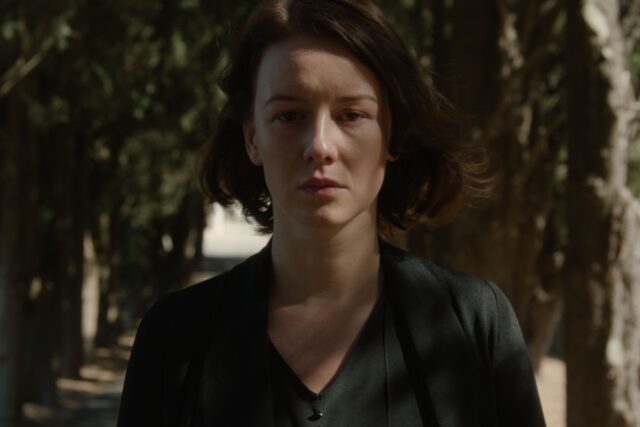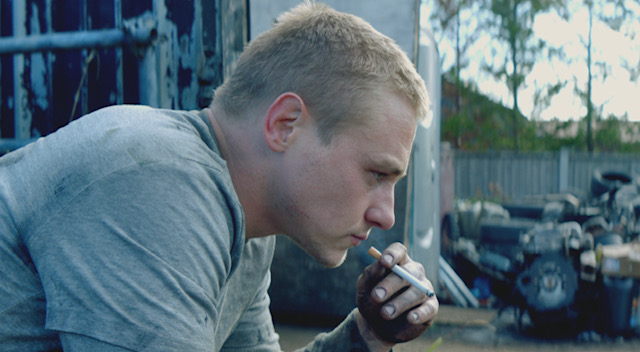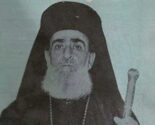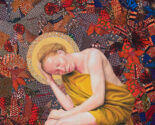One of the world’s most laid-back film festivals returned this fall in London, the BFI London film festival returned with its usual mix of world premieres and indie treats. Below are some of my personal festival favourites.
The Rye Horn
The Rye Horn, is a Galician feature set during the dying days of the Franco regime, when abortion was illegal. The film charts what happens when a young pregnant woman comes to a childless midwife, Maria for help. A woman who may know how to perform an illegal abortion. The film highlights what happens in a society where women lose control over their own bodies. A society where motherhood is revered, above almost all else, to the extent that it becomes a forced obligation for all women. When something goes catastrophically wrong, Maria is forced to flee, and we watch her desperate journey for survival. The Rye Horn’s director is Jaione Camborda’s, it is her second feature and although set several decades ago in Spain, when it was ruled by a dictator, the film has an unexpected resonance today with new antiabortion laws in the US and Poland. The Rey Horn tells an important story through a female perspective.
The Bride
The Bride is another feature in this year’s festival, which focuses on the lives of women. The film is set in Africa, in post war Rwanda where the country’s Tutsi community, are struggling to rebuild their lives after the genocide (between 500,000 to 800,000 were slaughtered). The film shows how the Tutsi community are living with wounds, which simply will not heal. The Bride focuses on the teenage title character, an ambitious young woman waiting to see if she has been accepted to a prestigious university to begin her medical studies. She suddenly finds herself the victim of a traditional practice where would be brides are abducted by desperate grooms, some made all the more desperate because of the genocide carried out against their community. Eva initially resist all attempts made by her perspective husband at integrating her into his family. But once she finds out his family’s tragic history she feels torn and finds herself very much at a crossroads as she struggles to decide what is the right thing to do, to stay and help him rebuild his life or to return to her own family. Myriam U. Birara’s feature looks at war’s legacy and the lives of those left behind.
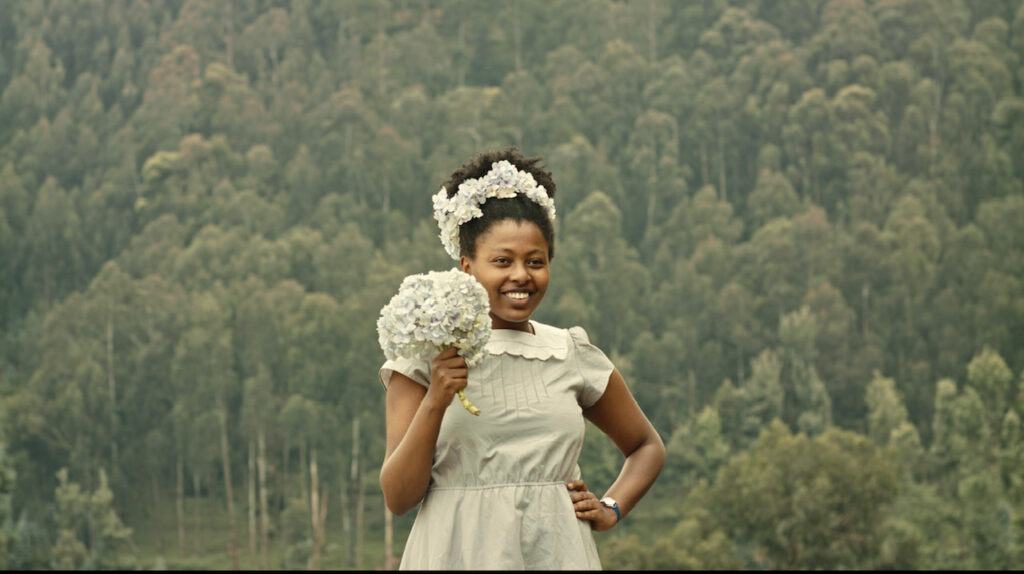
Mambar Pierrette
Mambar Pierrette, also tells a story from a female perspective, as it looks at a week in the life of Mambar a single mother and sought-after dressmaker by her local community in the coastal town of Douala. We watch her desperate struggle to pay her family’s bills after she is robbed and her studio is unexpectedly flooded. Beautifully filmed and written, with a deeply moving performance from its central actress Pierrette Aboheu, the director’s cousin. Mamber Pierrette highlights how precarious the lives of many who live in the global south are. It also shows how despite setbacks these women often possess an awe-inspiring resilience.
Unicorns & The End We Start From
Two British features which stood out at this year’s festival were Unicorns, a beautiful and haunting depiction of an unexpected love affair between a straight, white working-class single dad and a beautiful, queer Asian performer. The film is a wonderful celebration of sexual identity and gender fluidity co-directed by husband and wife team Sally El Hosaini, James Krishna Floyd. Taking questions after its screening, Floyd made a heartfelt plea that humanity finds some way to move pass our personal hashtags, if we are indeed going to survive has a species.
The End We Start From is the other British feature which stars the incredible Jodie Comer and looks at our current climate apocalypse. The film charts a young couple who on the day their baby is born, the country experiences catastrophic flooding which leads to a complete breakdown in social order. With authorities unable to re-establish order or simply feed people, the couple flee the city and struggle to find a way to survive in Britain’s countryside. Mahalia Belo’s beautifully acted feature is a terrifying look at where climate change may be taking us if we choose to ignore it.
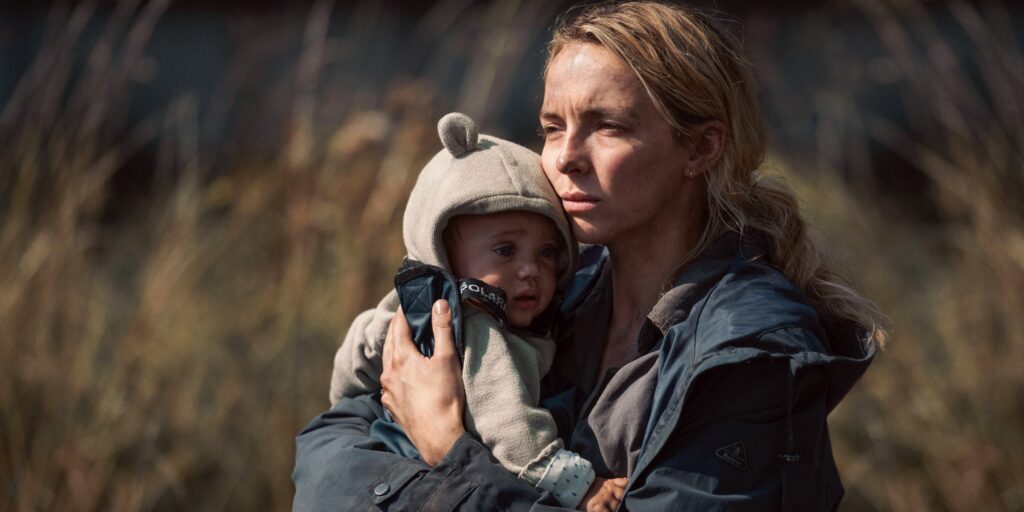
Kidnapped | By Marco Bellocchio
Kidnapped, directed by Italian master Marco Bellocchio, is based on a true, disturbing event where in 1851, Edgardo Mortara, the sixth child of a Jewish family was secretly baptised by his Christian nanny when he was ill. Once the child recovers, the nanny believing his recovery was due to his baptism informs the Catholic church. The church decrees that no Christian can remain with Jewish parents. Therefore the boy is removed from his parents’ home and given to the church, where he is raised in a Catholic boarding school for converted Jews. Despite his parents’ continual efforts to have him returned, they are only allowed one visit with him during his childhood, where he secretly confesses to reciting his Jewish prayers. The film charts how the boy struggles to work out who he really is, and how his identity is being shaped through the continual pressure exerted by the Catholic Church. The film highlights the historic force of anti-Semitism in Europe. A force still felt today.
Shoshana | By Michael Winterbottom
The film looks at the relationship between Shoshana, an independently minded Jewish young woman, a journalist and daughter of left-wing Russian emigres who believed in a multi-faith state, and a liberal minded British officer stationed in British Mandatory Palestine. The film charts the disintegration of their relationship as the level of violence increases (including the assassinations of British officers) they are forced to choose a side. For anyone looking for a context for the current war in the Middle East, they should look no further than this film. One criticism of the film would possibly be that Palestinians are never given a voice throughout and are only seen fleetingly as victims but what the film does successfully highlight is how difficult it can be to walk a middle path. Shoshana points to two traumatised people fighting over one land.
This year’s festival was another triumph and perhaps illustrates that during these troubled times perhaps the best way to seek an understanding of our current world is to simply watch the movies we make. The best of which helps us to perhaps to see the other side of the story.
Michael Winterbottom interview on Shoshana at London Film Festival 2023
- Circles | Michael’s Story
- BFI London Film Festival
- BFI London Film Festival 2021
- Reiki: Give Your Health A Hand!
- The World through Egyptian Eyes
